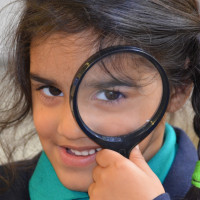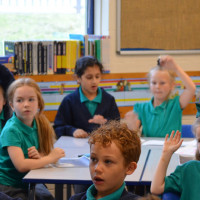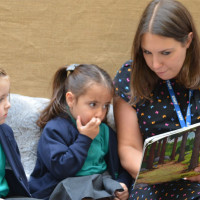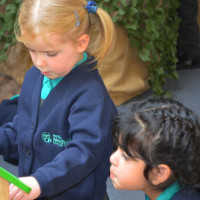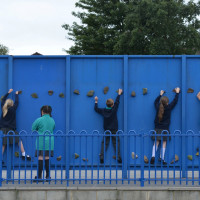3rd January 2021
CEO Message on Opening of Schools in January 2021
Beckfoot Trust Primary and Special Schools
As made clear by the DfE, Beckfoot Trust Primary and Special Schools will open as planned week beginning 4th January 2021 and we look forward to welcoming pupils for the start of an exciting new term.
The Government has published contingency plans for schools to close or partially close if this is considered necessary to control the spread of Coronavirus. Their planning document can be read here:
At present, in Bradford these plans require primary schools and special schools to remain open for pupils.
Beckfoot Trust Secondary Schools
Our secondary schools will open on 11th January for exam groups in Yr 11 and 13. All other year groups will attend school from the 18th January.
All secondary schools will continue to be available for children described as ‘vulnerable’ and those of ‘critical workers’. A definition of pupils in these groups is included at the end of this statement.
Moving Forward
We are closely following the ongoing challenge to the government’s back to school plans from unions and professional associations. Over the last few days we know that the majority of teaching and support staff unions have written to the government to ask them to implement their strictest levels of contingency planning across the country. When the government responds to the unions we may need to change our plans. Some unions have issued their members with a model letter to use to write to Headteachers if they feel that their school should not be open. We also know that two of the teaching professional associations (ASCL and NAHT) have started legal proceedings against the DfE for the failure to disclose scientific evidence for the decisions that have been taken regarding schools. As I write, the government have not responded and have repeated their decision to open primary and special schools in most parts of the country on the 4th January.
We have also noted that the government position has been endorsed by Bradford Local Authority, Ofsted and the Children’s Commissioner.
Our approach
Our priority since the beginning of the pandemic has been to do all we can to keep our schools open providing we are confident that they are a safe places in which to learn and work. Our mantra has been to follow the best national guidance. We have trusted that the DFE have shaped their approach to school opening based on the best scientific advice available to them.
In addition, as a Trust we have a formal relationship with our teaching and support unions and professional associations. A good example of this relationship has been our collective agreement on the drafting of our Covid 19 Risk Assessments for each school. We have not, as yet, heard from them with regard to the latest national developments.
We have also developed much stronger remote learning strategies within all our schools to support children to learn at home should schools have to shut. We seek at all times to take calm, measured and rational decisions.
To conclude, what is clear to us all is that the situation is ever-evolving and the next few months are likely to be challenging for us all. We will continue to monitor the national position closely and, with it, the implication for our schools.
David Horn CEO Beckfoot Trust
Further information:
Definition of a Critical Worker
As a reminder, Critical Workers entitled to send their children to schools are defined as ‘parents whose work is critical to the coronavirus (COVID-19) response include those who work in health and social care and in other key sectors’. A more detailed list can be found here Critical workers and vulnerable children who can access schools or educational settings - GOV.UK (www.gov.uk)
Definition of a Vulnerable Child
As a reminder, vulnerable children are expected to attend school and the Government explains that this group includes those who:
- are assessed as being in need under section 17 of the Children Act 1989, including children and young people who have a child in need plan, a child protection plan or who are a looked-after child
- have an education, health and care (EHC) plan
- have been identified as otherwise vulnerable by educational providers or local authorities (including children’s social care services), and who could therefore benefit from continued full-time attendance, this might include:
- children and young people on the edge of receiving support from children’s social care services
- adopted children, those at risk of becoming NEET (‘not in employment, education or training’)
- those living in temporary accommodation, those who are young carers
- those who may have difficulty engaging with remote education at home (for example due to a lack of devices or quiet space to study)
- others at the provider and local authority’s discretion
Please see this link for clarification Critical workers and vulnerable children who can access schools or educational settings - GOV.UK (www.gov.uk)


